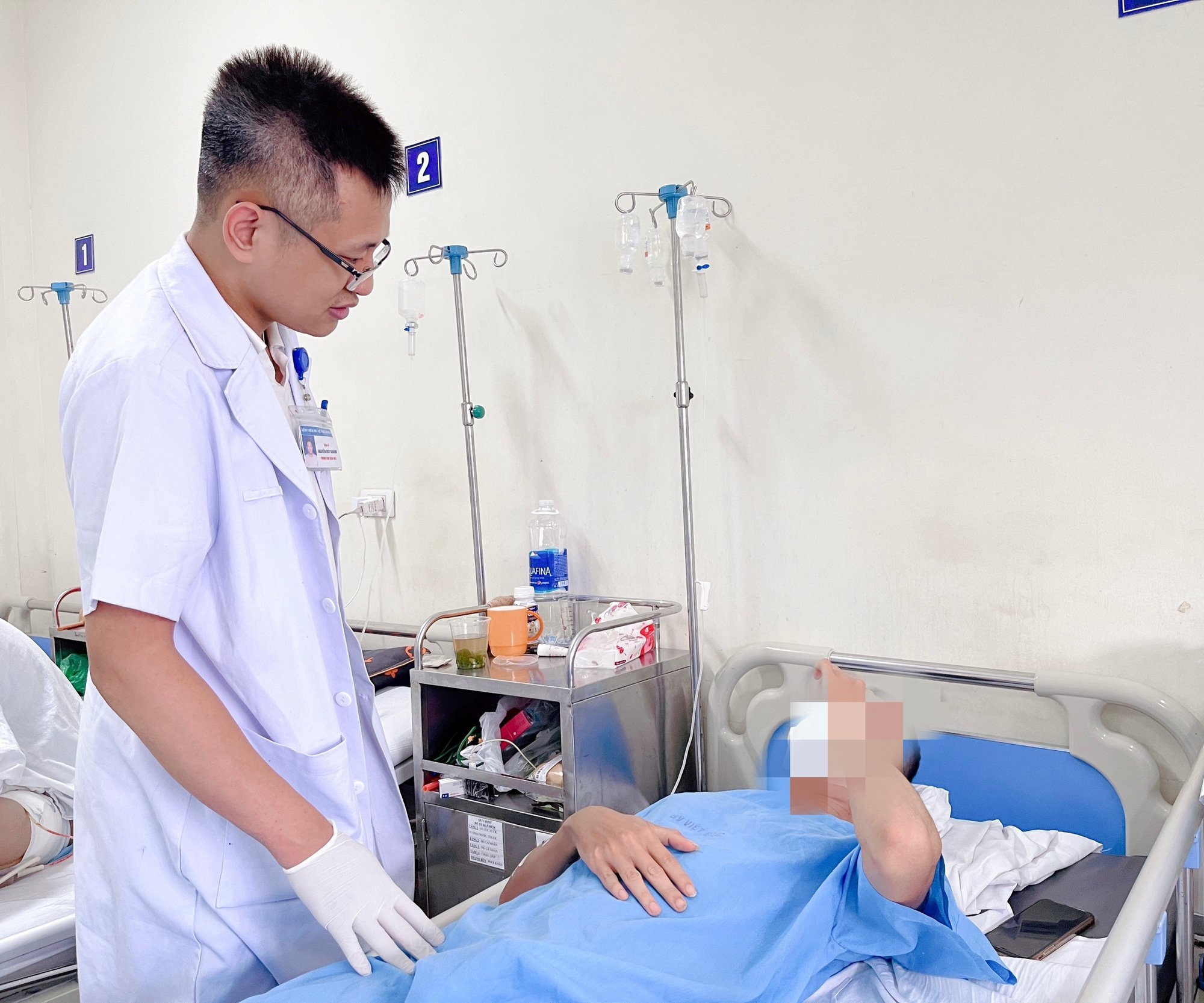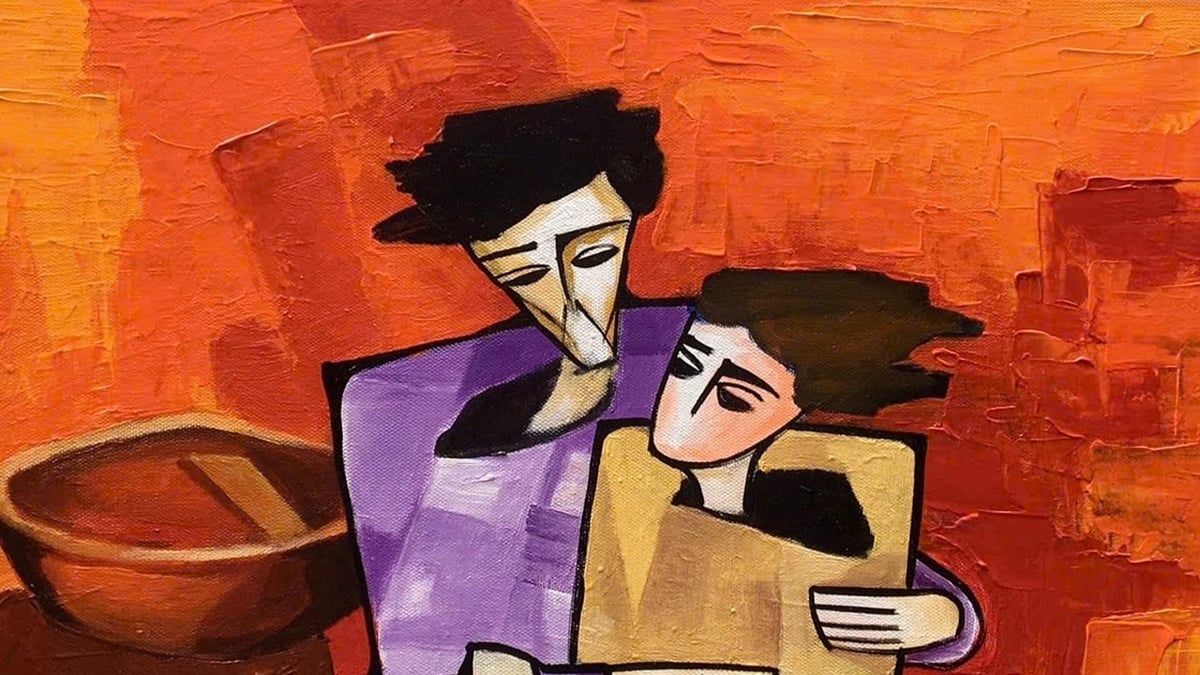Doctor Nguyen Duy Khanh, Andrology Center, Viet Duc Hospital ( Hanoi ) said that doctors here have just received and treated a 24-year-old male patient (in Lang Son) with inguinal hernia and testicular torsion.
A young man came to the hospital because of a bulge in his groin. Ultrasound results showed a large left inguinal hernia measuring 4x7 cm, compressing the left testicle. The volume of the left testicle was only 3.5 ml, while the right testicle had been removed.

The male patient recovered after surgery but the risk of infertility is very high. Photo: Kim Oanh
"The semen analysis showed that the young man only had 1-2 mobile sperms, while the average semen density of a normal person is 15 million sperms/1 ml," said Dr. Khanh.
Immediately after admission, the patient underwent abdominal wall reconstruction surgery to release the herniated organ pressing on the testicles. However, according to Dr. Khanh, in a case like the male patient's, even with surgery and treatment, it would be very difficult to have children.
Inguinal hernia is a fairly common condition in infants and young children. This is an abnormal bulge, or protrusion, that can be seen and felt in the groin area (the area between the abdomen and thighs). The bulge in the groin area can be noticed when the child cries, coughs, or due to increased bowel movements (constipation, straining), or it can also be present from birth, moving up and down easily. Statistics show that 90% of children with inguinal hernias are boys. This rate is higher in premature babies.
Associate Professor, Dr. Nguyen Quang, Director of the Andrology Center, Viet Duc Hospital - President of the Vietnam Association of Gender Medicine, said that inguinal hernia should be treated as soon as possible in men. Compression in the spermatic cord area will reduce blood flow to the testicles, causing severe pain in the scrotum, making it difficult to study, work, and live, and is also one of the causes of infertility.
"Many men often pay little attention to this condition and go to the hospital for examination and treatment when the testicles have atrophied. This leads to a low risk of having children after surgery, and usually requires the use of assisted reproductive measures," Associate Professor Quang warned.
Doctors also note that in cases where one testicle has been removed, the remaining testicle should be protected by the following methods: not playing contact sports or using protective gear carefully; getting a booster shot for mumps; avoiding urethritis, epididymitis, orchitis; no alcohol, cigarettes, tobacco...
Source



































































































Comment (0)